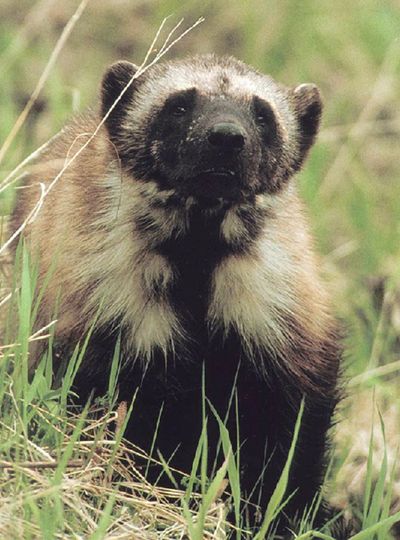Climate-threatened wolverine joins backlog of candidates

HELENA – The impact of climate change on wolverines warrants adding the small, ferocious mammals to the list of endangered and threatened species, but consideration of other species said to be in greater danger will prevent such protection for now, wildlife officials said Monday.
The U.S. Fish and Wildlife Service estimated in its report that there are 300 or fewer wolverines in the contiguous United States, with most living in the northern Rocky Mountains.
The animals need adequate spring snow cover to reproduce, and female wolverines have abandoned dens when temperatures warm and snow conditions become wet due to the changing climate.
Warmer winter temperatures are reducing the snow pack in the West, with more rain than snow falling in the spring, making climate change the “primary threat to the wolverine population,” the Fish and Wildlife report said.
The agency found the North American wolverine is a distinct population segment, separate from populations of the species in Canada or Alaska. The designation makes its addition to the Lists of Endangered and Threatened Wildlife and Plants warranted, the agency said.
“Currently, however, listing the contiguous U.S. (population) of the North American wolverine is precluded by higher priority actions,” the report states.
Instead, the animal will be added to a candidate species list, and the Fish and Wildlife Service will develop a proposed rule to add the wolverine population to the endangered and threatened list as priorities allow.
The length of time the wolverine remains on the candidate list depends on the number of species ahead of it and when funding would be available to add it to the endangered and threatened species list, Fish and Wildlife Service spokeswoman Diane Katzenberger said.
Conservation groups petitioned the federal government to protect the wolverine in 1995 and again in 2000. Two years ago, the agency found the wolverine was not eligible for listing under the federal Endangered Species Act because it did not constitute a distinct population segment.
Conservationists sued, and last year the agency agreed to study the matter again.
Tim Preso, an attorney with Earthjustice, told the Associated Press the new finding is a breakthrough that reverses past denials by the federal government that the wolverine faces the threat of extinction.
However, the wolverine will now be mired in a backlog of other species waiting to receive federal protection, he said.